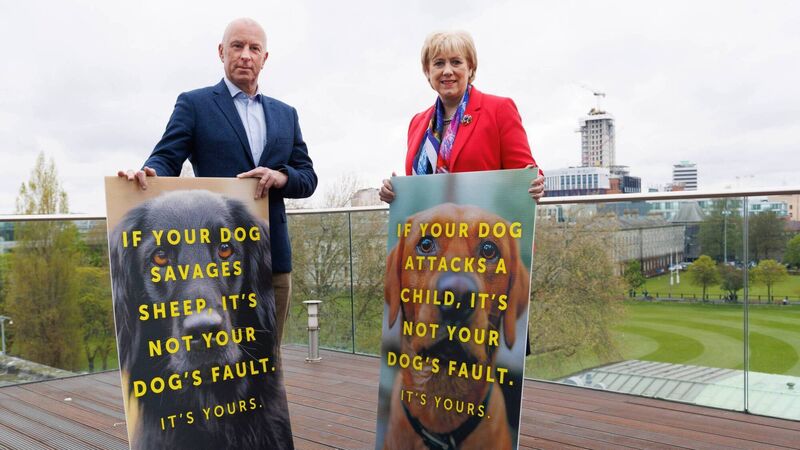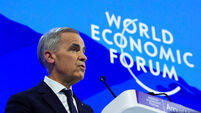Letters to the Editor: Resolution to dog crisis is plain to see

Social Protection Minister Heather Humphreys with Chair of the Dog Control Stakeholder Group John Twomey mark the start of a major advertising campaign on ‘responsible dog ownership’. Picture: Damien Eagers/Julien Behal
As a dog trainer and long-serving volunteer at rescue shelters, I find the recently launched Government’s awareness campaign reminding dog owners of their responsibilities to be a misguided opportunity to resolve the crisis of abandoned dogs.
The media slogan ‘It’s not your dog’s fault, it’s yours’ completely misses the source of the problem; increased fines, the additional €2m to support for dog pounds, and the establishment of the Dog Control Stakeholder Group are more likely to temporarily appease the anger of livestock owners rather than deliver a logical, grounded and permanent solution to any problem.











